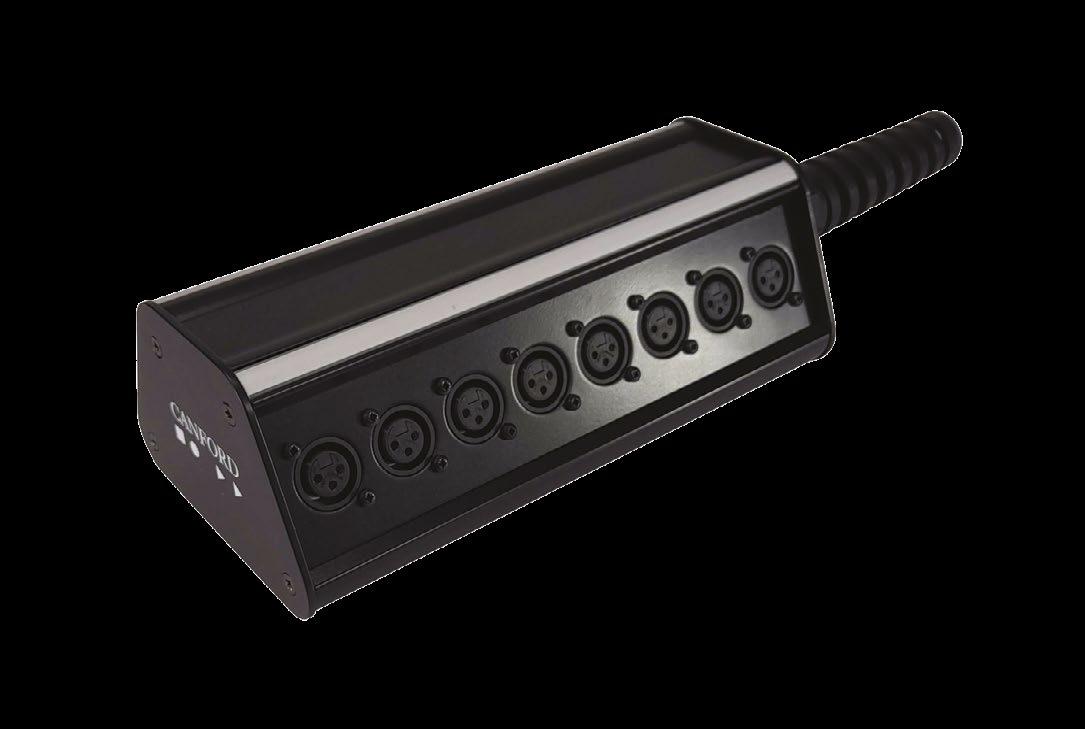
4 minute read
How dock10 is helping to reduce the Carbon Footprint of Production
By Paul Houghton Head of Risk Management at dock10
In the end credits of television programmes, you might have noticed the little albert footprint logo that indicates that the show has been albert certified. But who is albert? Why is albert so important? And how is dock10 helping albert? dock10’s Head of Risk Management, Paul Houghton, explains how the television climate change organisation albert is helping to reduce the carbon footprint of productions.
Albert is an environmental organisation that is encouraging the television and film industry to reduce waste and minimise its carbon footprint - from national broadcasters to small indies. Every time a programme is made, the production team use albert’s carbon calculator to work out the total amount of greenhouse gases emitted as a direct result of making that programme and therefore how big an impact the show has had on the environment. This is done by answering a series of questions about production activities, such as the show’s studio usage and time spent in edit suites. The results are displayed by albert as a series of charts showing the total CO2 emitted during the course of production, the amount of CO2 emitted per £100k of budget and, arguably most significantly, the CO2 per production hour. The aim is to highlight television’s impact on the environment and to help production companies cut the amount of CO2 they produce when making programmes. Albert asks each production to have a carbon action plan that looks at a whole range of different areas from power to recycling. In many of these areas, the production relies heavily on the facility where the programme is being made. dock10 has always taken sustainability very seriously and has a number of measures that contribute to a more positive albert assessment.

Firstly, dock10 is certified to ISO 14001 Environmental Management and ISO 50001 Energy Management that are awarded to organisations proved to be minimising their environmental impact and conserving resources through efficient energy management. We are proud of this certification as it underpins our ongoing commitment to sustainability – the very ethos albert is working to reinforce within the industry. In fact, dock10 has had its buildings verified as net zero carbon by a third party using the UK Green Building Council’s 2019 definition. We are among a cluster of buildings at Media City that make up the highest concentration of net zero carbon buildings in the UK. The remaining emissions of our buildings are offset through a Verified Carbon Standard project twinned with tree-planting in the northwest that is creating the Northern Forest, giving the global environmental benefits a local focus. Usually, the biggest input into the Albert carbon calculator is power, and here dock10 really helps its customers to minimise their carbon footprint. We take our power from the Media City Combined Heat and Power system, or CHP, that generates its electricity by burning gas. However, the heat generated in this process is also used to heat the buildings and any excess is used to chill the water that helps to cool technical areas of the facility. This makes the system we use incredibly efficient and very carbon friendly. When the CHP system was installed in 2011, it contributed significantly to Media City being named the world’s first sustainable community by BREEAM – a world-leading sustainability assessment for infrastructure and buildings. Lighting is a crucial element of any television production and a big draw on power. We encourage productions in our studios to use low-energy lights wherever possible in their lighting rigs. What’s more, throughout our facility we are steadily changing all the lighting in our buildings to be highefficiency LED lighting that is better for the environment. This is supported by signage and systems that help to ensure lights and equipment are switched off when not being used. Inevitably, some of our equipment relies on battery power and we always use rechargeable batteries for preference. However, where single-use batteries are unavoidable we make sure they are collected and sent for recycling. When it comes to recycling, dock10 works hard to ensure that the maximum amount of material is recycled. We have colour-coded recycling points across the facility that helps to stream any waste into their appropriate categories, such as plastics, cardboard and aluminium. Any waste that cannot be recycled is separated into material that can be burnt to generate power and waste that needs to go to landfill. We are very proud that normally less than 5% of the waste we generate ends up in landfill. Albert’s certification scheme promotes greener ways of working by rewarding productions for using sustainable practices and cutting their carbon footprint. It’s estimated that on average, albert certification brings a 10-15% reduction in a programme’s carbon footprint that adds up to a saving of around £6,000 in energy and other costs. Bigger productions may save even more. And of course, the benefits to the planet also add up. The TV industry is not one of the world’s worst environmental offenders, but albert is there to remind us that everything we do has consequences - and there are always things we can do better.











